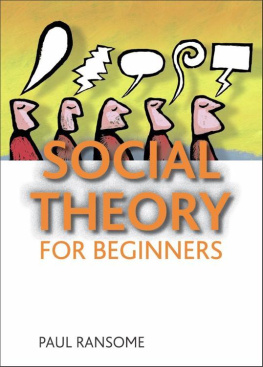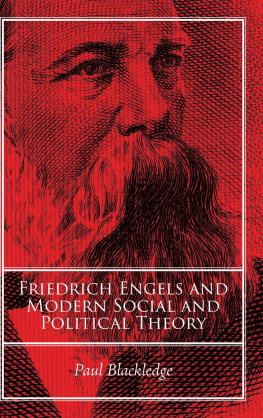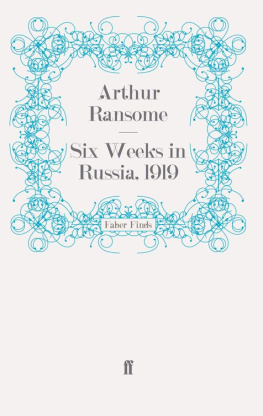Paul Ransome - Social theory for beginners
Here you can read online Paul Ransome - Social theory for beginners full text of the book (entire story) in english for free. Download pdf and epub, get meaning, cover and reviews about this ebook. year: 2010, publisher: Policy Press, genre: Politics. Description of the work, (preface) as well as reviews are available. Best literature library LitArk.com created for fans of good reading and offers a wide selection of genres:
Romance novel
Science fiction
Adventure
Detective
Science
History
Home and family
Prose
Art
Politics
Computer
Non-fiction
Religion
Business
Children
Humor
Choose a favorite category and find really read worthwhile books. Enjoy immersion in the world of imagination, feel the emotions of the characters or learn something new for yourself, make an fascinating discovery.
- Book:Social theory for beginners
- Author:
- Publisher:Policy Press
- Genre:
- Year:2010
- Rating:4 / 5
- Favourites:Add to favourites
- Your mark:
- 80
- 1
- 2
- 3
- 4
- 5
Social theory for beginners: summary, description and annotation
We offer to read an annotation, description, summary or preface (depends on what the author of the book "Social theory for beginners" wrote himself). If you haven't found the necessary information about the book — write in the comments, we will try to find it.
Social theory for beginners — read online for free the complete book (whole text) full work
Below is the text of the book, divided by pages. System saving the place of the last page read, allows you to conveniently read the book "Social theory for beginners" online for free, without having to search again every time where you left off. Put a bookmark, and you can go to the page where you finished reading at any time.
Font size:
Interval:
Bookmark:

Bear in mind, Sir Henry, one of the phrases in that queer old legend which Dr Mortimer read to us and avoid the moor in those hours of darkness when the powers of evil are exalted.
(Sir Arthur Conan Doyle, The Hound of the Baskervilles , London: George Newnes, 1902)
This edition published in Great Britain in 2010 by
The Policy Press
University of Bristol
Fourth Floor
Beacon House
Queens Road
Bristol BS8 1QU
UK
t: +44 (0)117 331 4054
f: +44 (0)117 331 4093
e: tpp-info@bristol.ac.uk
www.policypress.co.uk
North America office:
The Policy Press
c/o The University of Chicago Press
1427 East 60th Street
Chicago, IL 60637, USA
t: +1 773 702 7700
f: +1 773-702-9756
e:sales@press.uchicago.edu
www.press.uchicago.edu
The Policy Press 2010
British Library Cataloguing in Publication Data
A catalogue record for this book is available from the British Library.
Library of Congress Cataloging-in-Publication Data
A catalog record for this book has been requested.
ISBN 978 1 84742 674 1 paperback
ISBN 978 1 84742 675 8 hardcover
The right of Paul Ransome to be identified as author of this work has been asserted by him in accordance with the 1988 Copyright, Designs and Patents Act.
All rights reserved: no part of this publication may be reproduced, stored in a retrieval system, or transmitted in any form or by any means, electronic, mechanical, photocopying, recording, or otherwise without the prior permission of The Policy Press.
The statements and opinions contained within this publication are solely those of the eauthor and not of the University of Bristol or The Policy Press. The University of Bristol and The Policy Press disclaim responsibility for any injury to persons or property resulting from any material published in this publication.
The Policy Press works to counter discrimination on grounds of gender, race, disability, age and sexuality.
Cover design by The Policy Press
OUTLINE CONTENTS
LIST OF FIGURES
PREFACE AND ACKNOWLEDGEMENTS
Social theory and sociological theory attempt to provide coherent explanations of human social action as it takes place in the context of other social actors and their actions and with the help or hindrance of the social practices and institutions that surround them. This book is about trying to explain those explanations to social actors who, despite being active social theorists in their own daily lives, have an interest in knowing more about the kinds of explanations offered by social theorists.
If you already have a working knowledge of social theory this book is not written for you. If you are reviewing the book to see if it is suitable for the students you teach then why not buy a copy or two and ask them what they think about it? As an anonymous philosopher once said, Those who have knowledge forfeit the capacity for ignorance.
I would like to acknowledge the help of Karen Bowler and her colleagues at The Policy Press who have supported what is an ambitious project both in the writing and in the production. Most of all I thank my wife, Harriet, and children, Alfred and Willow, who tolerated my need to write this book. In answer to their refrain Havent you finished that bloody book yet?, I can finally answer Almost!
PER, January 2010
INTRODUCTION
Who is this book for and how do I use it?
This book has been written for people who need to know more about social theory and sociological theory but who have not yet had a chance to develop that knowledge. If you do already have a detailed knowledge of the subject then, for the same reason that Pel and Ronaldo dont need books about perfect ball control, you dont need to read this book.
This introduction describes:
Practical organisation of the material.
Intellectual organisation of the material.
Practical organisation of the material
The information in this book is divided into a number of different chapters. Each chapter is divided again into shorter sections. Throughout each chapter information boxes and headings are provided that are designed to help you find your way around, to highlight the key points and to practise what we have been preaching.
To find the general location of the information you need, you should first look at the Contents page at the front of the book and possibly at the Index of names and subjects at the end of the book. Having found the right chapter you should turn to the information box at the start of that chapter. Here you will find a more specific summary of what that chapter contains. Each chapter begins with a contents box (just like the one above) to show you what the chapter contains. At the end of each chapter there is a key points box itemising the most essential information covered in that chapter. This box will help you review the material you have just been reading.
In order to help you understand what part the authors, concepts and ideas described in that chapter have played in the development of social theory, there are also a number of practice boxes . These are simple suggestions about how you could practise some of the ideas for yourself. For example, in , mile Durkheim and the coming of industrial society , one of the practice suggestions is to imagine how your daily routine differs from that of your great-grandparents in terms of the technology you use. Thinking about the answer to this question requires you to reflect on just how much we now depend on technology. It is difficult to imagine what our lives would now be like without technology. To put it the other way around, contemporary society is quite different from society a hundred years ago because of the levels of technology it contains.
Two other kinds of help Glossary and links
Social theory often contains words and phrases that have a specialist meaning for social theorists. To help you crack the code of social theory, a list of important definitions is provided in the Glossary at the end of the book. To illustrate, we have just been talking about functionalist approaches to social theory. contains a full definition of functionalism but for quick reference you can look up the short definition of the word in the Glossary: Functionalism. An abstract approach in social theory that describes the various institutions and practices of society in terms of how they function to the benefit of society or the social system as a whole.
It is also worth checking the Glossary for words that, although they have a common usage, have a specialist usage as well. For example, we have just used the word practice in the phrase practices of society. This word generally means the way something is usually done as in it is normal practice to read the book before writing the essay. Social practice also has a specialist meaning in social theory to describe routines of behaviour that have become characteristic of that particular society. Social practices are inscribed into peoples behaviour a bit like well-trodden footpaths in the countryside. Social practices become the normal or expected way of doing things.
The second kind of practical help reflects the fact that although authors, ideas and concepts can be grouped together reasonably neatly, often there are important linkages between one topic or issue in one part of the book and other topics and issues in other parts of it. When a particular concept or idea is discussed in another part of the book, or when it would be especially useful to know about related ideas and concepts, a brief cross-referencing note see also is provided to help you follow these links.
Next pageFont size:
Interval:
Bookmark:
Similar books «Social theory for beginners»
Look at similar books to Social theory for beginners. We have selected literature similar in name and meaning in the hope of providing readers with more options to find new, interesting, not yet read works.
Discussion, reviews of the book Social theory for beginners and just readers' own opinions. Leave your comments, write what you think about the work, its meaning or the main characters. Specify what exactly you liked and what you didn't like, and why you think so.







